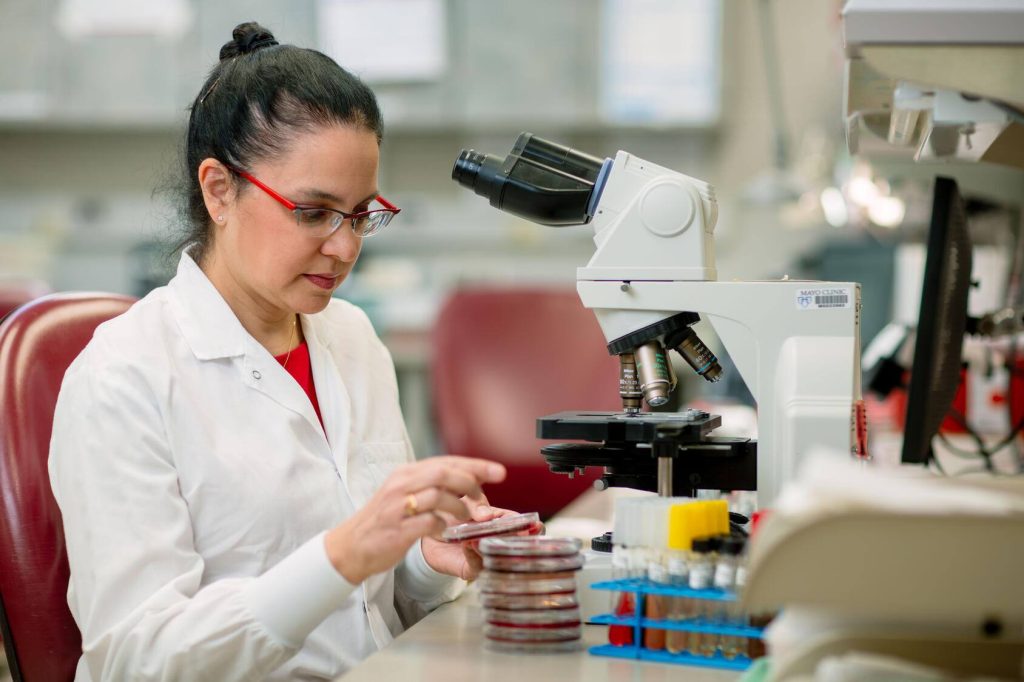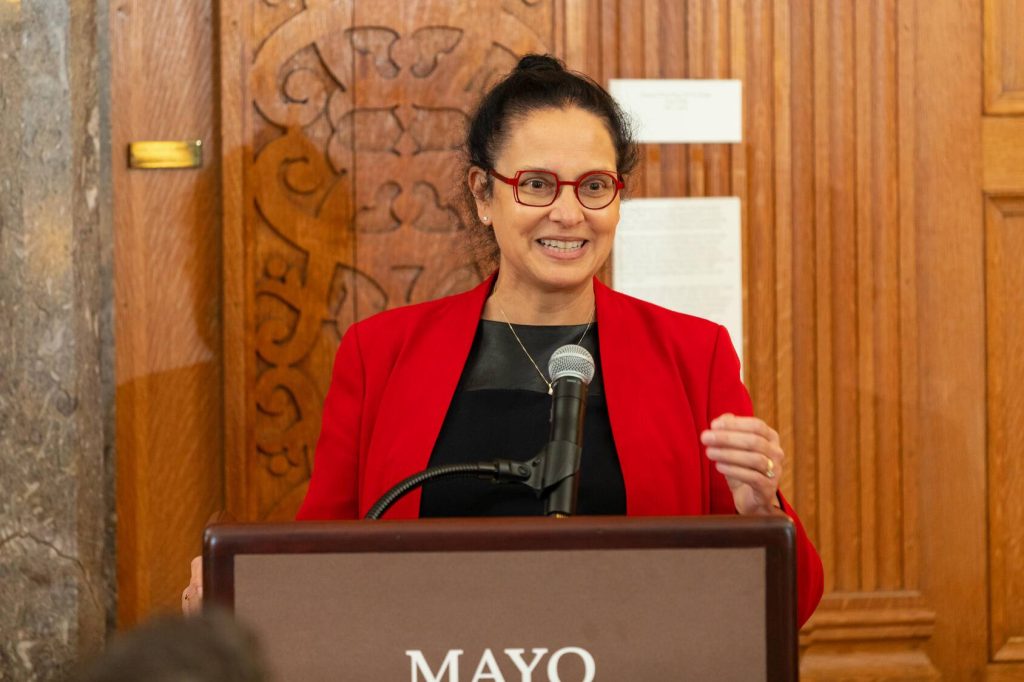-
Featured News
Women in science: Q&A with Robin Patel, M.D.

Two events held early each year are opportunities to support and recognize the contributions of women in scientific fields. In February, the International Day of Women and Girls in Science promotes full and equal access to and participation in science. Women's History Month in March is an opportunity to recognize women who have made significant contributions to science.
Mayo Clinic physician researcher Robin Patel, M.D., shares her perspective and advice for others pursuing a research career in this Q&A below.
Robin Patel, M.D.: Work hard, have a positive attitude and collaborate
Dr. Patel has made substantial contributions to research in the areas of periprosthetic joint infection, antimicrobial resistance and advanced microbial diagnostics. She is the director of Mayo Clinic's Infectious Diseases Research Laboratory, a past chair of the Division of Clinical Microbiology and the current co-director of its Bacteriology Laboratory. She is the Elizabeth P. and Robert E. Allen Professor in Individualized Medicine.

What led you to a career in science?
I was always interested in science, even as a young child. In high school, I took all the science classes I could, and I participated in science fairs. At Princeton University, I majored in chemistry; I spent about half my time as an undergraduate working in a research laboratory. I then completed a medical degree, focused mainly on patient care.
I love medicine and enjoy working with patients; however, I realized early on that there is so much more we need to learn to help our patients, and that led me back to discovery research. When I was in training at Mayo after medical school, I remember taking care of a patient who was infected with a kind of bacteria that was resistant to every antibiotic we had at the time. While this was scientifically interesting and I was able to explain what had been found to the patient, I realized that we needed to figure out what to do about this; it is a problem when we do not have anything to offer to our patients. That kind of experience motivated me to pursue a career in investigational science.
What progress have you seen for women in science?
First, there has been progress. During my undergraduate years at Princeton University, my class was about two-thirds male; that has clearly changed today. I’ve continued to witness progress through this day.
I was one of the first female consultants in the Division of Infectious Diseases at Mayo Clinic, and I was the first female chair of the Division of Clinical Microbiology. Last year, I was honored to receive the Hamao Umezawa Memorial Award — I was only the second woman to have received this international honor. I continue to find myself on committees where I am the only woman. (I think I pay more attention to this than in the past.) So, there has been progress, but we need more.

Dr. Patel received the 2022 Distinguished Mayo Clinic Investigator Award for significant lifetime contributions to research in the areas of periprosthetic joint infection, antimicrobial resistance and advanced microbial diagnostics.
Are there areas where you feel more work needs to be done?
There is work to be done for women, but really for everyone, whether based on race, ethnicity, gender identity, sexual orientation, country of origin, local geography, visa status, financial background and so forth.
Today, we do have more women in science than we did historically, but I do not find representation of women to be equal across all scientific areas. There are not many women in all high-level scientific leadership positions. Much of my work is international; progress for women in science has not been the same in every country. There are countries where there is relatively equitable distribution of men and women in some areas of science, and others where this is not the case. It can be striking when one pays attention. So I think this is not just a question of time, but also a question of place.
What advice do you have for women who are pursuing a research career?
Pursue what excites you, because it is great if you love coming to work every day and enjoy what you are doing. But do not take anything for granted. It is important to prepare, to get the right training to do what it is you would like to do, to study hard and to work hard. Those who are underrepresented may need to overprepare in some situations; that’s my experience.
Also, it is important to have a positive attitude and to collaborate. I have learned and been able to accomplish a lot through collaboration. I have several grants, and all are collaborative with investigators within Mayo and oftentimes outside of Mayo. Bringing together people from different scientific backgrounds leads to possibilities that could not be realized working alone. Beyond that, it is fun to work with others. Also, the many students and postdoctoral fellows I have had the opportunity to mentor have not only brought value to research but joy as well. It is truly fun to learn and advance the science together. Trainees do not just perform experiments, they also bring new ideas and solutions.
At the same time, science can be a struggle, involving harsh rejections of manuscripts and grants; it can be easy to take those personally. And experiments can fail, sometimes repeatedly. This must be carefully managed. Critiques can be viewed as helpful and constructive, and used to better science and, ultimately, patient care.
Related stories with Dr. Patel:
- Infectious Diseases A–Z: Why you should never take leftover antibiotics
- Phage therapy shows potential for treating prosthetic joint infections
- Science Saturday: Sleuthing out the fingerprint of disease
- Clay to Fight Bacteria in Wounds: An old practice may be a new solution
- Researchers find link between donor, bacterial infection in heart, lung transplant recipients







